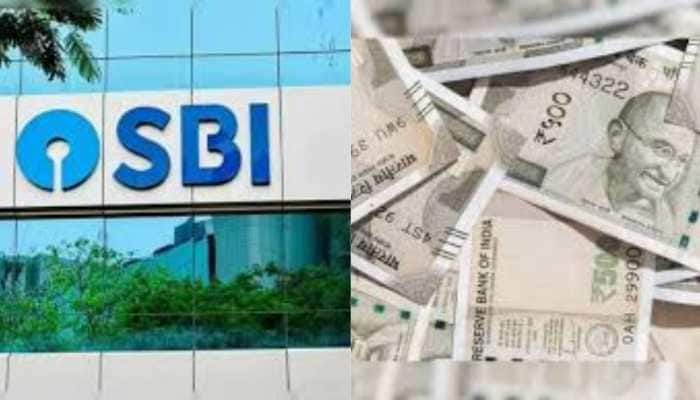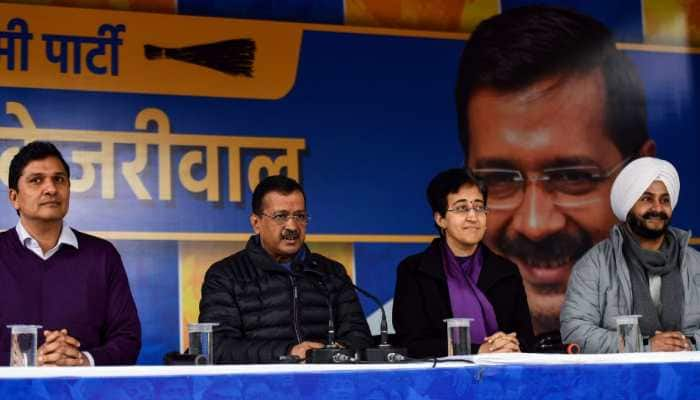Centre announces increase in funding for health sector in Jammu and Kashmir
The Central Government has announced plans to raise the level of funding for the health sector in Jammu and Kashmir in cooperation and coordination with the state government, keeping in mind the objective of providing state-of-the-art medical services and facilities to people living in the remotest and smallest towns of the state, according to the state's Health Minister, Mr Bali Bhagat.
Trending Photos
)
Srinagar: The Central Government has announced plans to raise the level of funding for the health sector in Jammu and Kashmir in cooperation and coordination with the state government, keeping in mind the objective of providing state-of-the-art medical services and facilities to people living in the remotest and smallest towns of the state, according to the state's Health Minister, Mr Bali Bhagat.
Efforts are on said the minister to ensure that the quality of healthcare becomes better not only in primary, but also in all secondary and tertiary hospitals, and the main mandate of the health department in the state is to ensure that every person has access to quality, equitable and affordable healthcare, whether it is in an urban or a rural area.
That priority is being given to the healthcare sector in Jammu and Kashmir can be gauged by the fact that earlier this week, the state government confirmed that the Centre has approved the setting up of two All India Institutes of Medical Sciences (AIIMS) in the region.
Bhagat said that one of the AIIMS would come up in Awantipora in south Kashmir's Pulwama district, while the second would come up in Jammu region's Samba district. He said a sum of Rs.4, 000 crores has been earmarked for this purpose under the Prime Minister's reconstruction package for the state.
Since both projects are to be set up in the state by the Centre, Bhagat said the budgetary details would be advised and provided by the Union government.
Once this AIIMS is completed in Awantipora in the Kashmir Valley, the patients who earlier used to go outside the state for medical treatment will have access to healthcare benefits in the state itself.
The quality of paramedics and medical staff is far superior to what exists in any other country in South Asia, including Pakistan said state government officials.
In Pakistan, particularly in Pakistan-occupied Kashmir, Gilgit and Baltistan, the crumbling socio-economic infrastructure prevents its people from even having access to basic healthcare. A serious illness and the prohibitive medical cost of treatment destroy households in this region. It is not far from the truth to say that the public healthcare system in PoK is in shambles, and people there have little or no means of accessing treatment.
In Gilgit, for instance, Tuberculosis, endocrinal disorders with mainly iodine deficiency disorders, iron deficiency, and diarrheal diseases are common. The region lacks a proper sewage system, while electricity and water supplies are still faulty. These factors prevent the development of a strong healthcare system.
Many patients are often forced to opt for costly private healthcare in areas far from their homes owing to the lack of public health services.
In Jammu and Kashmir, the commitment to healthcare is visible, particularly in Udhampur district, where, according to available figures, there are a total of 210 health institutions working round the clock to help the common man access medical facilities.
Recently, steps have been taken in the district to upgrade 25 public health centers (PHCs). In addition, 44 sub-healthcare centers have been sanctioned, all of which are equipped with modern medical equipment and trained medical staff.
Dr. Chandra Prakash, Chief Medical Officer (Health) for Udhampur, told ANI recently, "All hospitals in this district have been upgraded and one of our hospitals has even received the Kayakalp Award for providing state-of-the-art medical services. There are so many public health centers (PHC) now such as the PHC Goldie, the PHC Mada and the PHC Mongri.
"Mobile heath vans are on the move in the district to provide medical services at the doorstep of your homes," he added.
Om Prakash, a local resident, said, "The medical facilities in Udhampur are now very good. The hospitals and public health centers are clean."
"The coming up of PHCs in remote areas of the state is of great benefit to the people. Now, they don't have to travel long distances to get access to healthcare," added Jagdish Bharadwaj, a patient being treated at a hospital in Udhampur.
Vikram, another local resident, said, "A to Z facilities is available here. Both the Central and State governments are providing very good medical facilities in Udhampur district. We now have much needed access to intensive care units (ICUs), physiotherapy clinics, blood banks, hi-tech laboratories, x-ray and CT Scan units etc."
"The doctors are well trained and are available 24x7, which is a far better than what we had before. Earlier, due to a lack of a facilities, patients ended up being the worst sufferers, but now, our medical wards are well maintained, pollution free and hygienic, thanks to the Swachh Bharat Abhiyan and other such schemes.
In Rajouri district's Darhal village, Union Health and Family Welfare Minister J.P. Nadda recently laid the foundation stone of a proposed Rs.190 crore hospital. This medical facility, which is to come up on 120 canals of land, is a big relief for the people of this remote area, as now, they will not have to travel all the way to Jammu, the state's winter capital, for medical treatment. This hospital is also expected to benefit the residents of neighbouring Poonch district.
In the last two years, a sum of Rs.688 crores has been released under the National Rural Health Mission (NRHM) to provide health facilities in the remote rural areas of the country.
Today, the Kashmir Division of the state has six major hospitals, including two in Srinagar alone, and one each in Rainawari, Baramulla, Anantnag and Chadoora. The Jammu Division of the state has five major health institutions, including two in Jammu and one each in Udhampur, Kathua and Akhnoor.
There are 3,690 healthcare centers and 10,600 beds in Jammu and Kashmir.
In the Kashmir Division, there are four medical colleges, six district hospitals, 22 sub-district hospitals, 120 allopathic centres, 11 medical aid centres, 803 subsidiary health centres, one hospital for patients suffering from leprosy and one hospital for emergencies.
A Mother and Child Tracking System (MCTS) has also been introduced to provide efficient ante-natal and post-natal checkups to women and infants. Details are available on the MCTS web site.
V Sats are being installed in Leh, Kargil, Poonch, Rajouri districts and other areas. Mobile SMS-based automation and performance-monitoring healthcare systems are also available.
Stay informed on all the latest news, real-time breaking news updates, and follow all the important headlines in india news and world News on Zee News.
Live Tv







)
)
)
)
)
)
)
)
)
)
